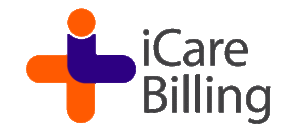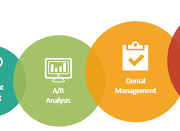Professional Medical Billing Service
Medical billing is a complex and integral component of the healthcare industry. Playing a pivotal role in ensuring the financial viability and operational efficiency of healthcare providers. As the healthcare landscape continues to evolve, Medical Billing Service has emerged as an indispensable partner, offering specialized services. Manage the intricate process of claims submission, reimbursement, and revenue cycle management. This article delves into the various aspects of Medical Billing Company, their functions, challenges, and the importance they hold in the broader healthcare ecosystem.
This is the leading Medical Billing Service, where precision meets efficiency. With a dedicated team of certified coders and cutting-edge technology, it specializes in navigating the complexities of healthcare reimbursement.
From accurate claims processing and coding compliance to streamlined revenue cycle management, it prioritizes your financial success. The commitment goes beyond transactions; it builds strong relationships with payers, ensuring smooth communication and quick dispute resolution. Trust it to optimize your cash flow, reduce claim denials, and keep you at the forefront of evolving industry regulations. Experience a seamless blend of expertise and technology with our comprehensive Medical Billing Service solutions.
Overview of Medical Billing Companies:
Medical billing companies are third-party entities that specialize in handling the administrative and financial aspects of healthcare practices. Their primary focus is on accurately processing and submitting medical claims to insurance companies, government agencies, and other payers on behalf of healthcare providers. These companies leverage advanced technology and a deep understanding of medical coding and billing regulations to optimize revenue cycles and mitigate financial risks for healthcare organizations.
Key Functions of Medical Billing Company:
There are as well many key functions of Medical Billing Company described in this article, you must know about them all before using them in the wrong way. The key functions are mentioned below in detail:
Claims Processing:
One of the fundamental functions of medical billing companies is to process claims accurately and efficiently. This involves translating medical services provided into universally recognized codes, submitting claims to payers, and following up on any denials or rejections.
Revenue Cycle Management:
Medical billing companies manage the entire revenue cycle for healthcare providers, from patient registration and eligibility verification to claims submission, payment posting, and accounts receivable management. Their goal is to streamline the process and ensure a steady cash flow for healthcare organizations.
Coding Compliance:
Accurate medical coding is critical for reimbursement and compliance. Medical billing companies employ certified coders who ensure that all codes used in claims adhere to the latest coding guidelines and regulations, reducing the risk of claim denials.
Payer Relations:
Building strong relationships with payers is crucial for successful medical billing. Billing companies liaise with insurance companies and other payers to resolve issues, clarify information, and expedite the reimbursement process.
Technology Integration:
Medical billing companies leverage advanced healthcare information systems and billing software to enhance efficiency and accuracy. Integration with electronic health records (EHRs) and other systems streamlines data exchange and improves overall workflow.
Benefits of Outsourcing Medical Billing Service:
There are many benefits of Medical Billing Service as:
Cost Efficiency:
Outsourcing medical billing can be a cost-effective solution for healthcare providers. By partnering with a specialized billing company, providers can reduce in-house administrative costs, including salaries, benefits, and ongoing training.
Expertise and Compliance:
Medical billing companies stay abreast of the ever-changing healthcare regulations and coding guidelines. This expertise ensures that claims are submitted in compliance with industry standards, reducing the risk of denials and audits.
Focus on Patient Care:
Outsourcing medical billing allows healthcare providers to concentrate on patient care and core medical activities. This can lead to improved patient satisfaction and overall practice efficiency.
Reduced Claim Denials:
Professional billing companies employ rigorous quality checks to minimize errors in claims submissions. This results in a significant reduction in claim denials, ensuring a more predictable revenue stream for healthcare organizations.
Future Trends and Innovations of Medical Billing Service:
The landscape of medical billing services is continually evolving, driven by technological advancements, regulatory changes, and shifts in healthcare delivery models. As we look ahead, several future trends and innovations are poised to shape the trajectory of medical billing services, influencing how healthcare providers navigate financial processes and optimize revenue cycles:
Artificial Intelligence (AI) Integration:
Artificial Intelligence is revolutionizing the medical billing landscape. AI algorithms have the potential to analyze vast amounts of data, identify patterns, and predict potential issues in claims processing. Through machine learning, AI systems can continuously improve accuracy, reduce errors, and enhance the overall efficiency of medical billing services. These technologies can automate routine tasks, such as claims verification and coding, freeing up human resources for more complex and strategic activities.
Blockchain Technology in Healthcare Transactions:
Blockchain technology is gaining traction for its potential to enhance the security, transparency, and integrity of healthcare transactions. In medical billing, blockchain can be utilized to create a decentralized and secure ledger for managing claims, ensuring data immutability, and reducing the risk of fraud. The distributed nature of blockchain can facilitate secure and transparent communication between various stakeholders, streamlining the billing process and minimizing discrepancies.
Telehealth Billing Solutions:
The rise of telehealth services is reshaping the way healthcare is delivered, and medical billing services are adapting to accommodate this shift. As virtual consultations and remote healthcare become more prevalent, billing companies are developing and implementing new coding structures to accurately capture and process telehealth-related services. Adapting to the unique requirements of telehealth billing ensures that healthcare providers can efficiently navigate reimbursement for virtual care, contributing to the overall success of telehealth initiatives.
Value-Based Care Models:
The healthcare industry is transitioning from fee-for-service to value-based care models, emphasizing outcomes and quality of care over volume. This shift requires a corresponding evolution in medical billing practices. Billing services are increasingly focused on aligning their processes with value-based reimbursement structures, which may involve new metrics, performance incentives, and alternative payment models. Adapting to these changes ensures that medical billing services remain integral to the financial success of healthcare providers.
Enhanced Data Security and Privacy Measures:
As the healthcare industry faces increasing cybersecurity threats, medical billing services are placing a heightened emphasis on data security and privacy. Strict adherence to regulations, such as the Health Insurance Portability and Accountability Act (HIPAA), is essential. Additionally, the implementation of advanced encryption technologies, secure data storage solutions, and robust cybersecurity protocols is becoming standard practice to safeguard sensitive patient information throughout the billing process.
Advanced Analytics for Revenue Cycle Management:
Advanced analytics tools are becoming indispensable for medical billing services, offering insights that go beyond traditional revenue cycle management. Predictive analytics can help identify potential bottlenecks, optimize workflows, and predict cash flow patterns. By leveraging data analytics, billing services can proactively address challenges, reduce claim denials, and provide healthcare providers with valuable insights for strategic decision-making.
Integration with Electronic Health Records (EHRs):
Seamless integration with Electronic Health Records (EHRs) is critical for enhancing the efficiency of medical billing services. The interoperability between billing systems and EHRs streamlines data exchange, reduces manual errors, and ensures the accuracy of patient information. This integration enhances the overall continuity of care and facilitates a more comprehensive approach to billing and reimbursement.
Final Report:
In conclusion, Medical Billing Company plays a crucial role in the healthcare ecosystem, providing specialized services to manage the complex and dynamic landscape of medical billing. Their functions extend beyond claims processing to encompass revenue cycle management, compliance, and technological integration. As the healthcare industry continues to evolve. Medical Billing Company will play an increasingly vital role in optimizing financial outcomes for healthcare providers and ensuring the sustainability of the healthcare delivery system. Understanding the challenges and embracing emerging trends will be essential for the continued success and relevance of medical billing companies in the ever-changing healthcare environment.
Moreover, the future of Medical Billing Service promises transformative advancements, with technologies like AI and blockchain reshaping processes for greater efficiency and accuracy. As telehealth gains prominence and value-based care models take center stage, billing services are adapting to meet evolving reimbursement needs. Enhanced data security measures and advanced analytics further strengthen their role in healthcare financial management. The integration of these innovations ensures that Medical Billing Service continues to be an invaluable partner for healthcare providers. Navigating complexities, reducing errors, and optimizing revenue cycles for a more sustainable and patient-centric healthcare future.








